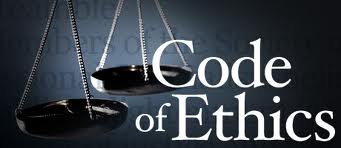By the time a medical malpractice case was arbitrated, the lawyer for the defendant doctor was “. . . doing [alternative dispute resolution] with ADR Services, Inc. . . . .” Neither the lawyer nor the arbitrator revealed to plaintiff that the defense lawyer had joined the arbitrator’s arbitration/mediation firm. The arbitrator found in favor of […]
Coverage Excluded For Ordinance or Law Under Homeowners Policy.
Plaintiffs’ homeowners policy reads: “We do not insure under any coverage for any loss which is caused by one or more of the items below, regardless of whether the event occurs suddenly or gradually, involves isolated or widespread damage, arises from natural or external forces, or occurs as a result of any combination of these: a. […]
Employer Mandated Tip Pooling Not Illegal.
Class action plaintiffs alleged their casino employer violated Labor Code sections 351 and Code of Civil Procedure section 631.8. The appellate court affirmed, stating that “given the absence of legislative intent to prohibit employer-mandated tip pooling,” it could not conclude the practice is illegal. Avidor v. Sutter’s Place, Inc. (Cal. App. Sixth Dist.; January 23, 2013) 212 Cal.App.4th 1439.
Placeholders, So-Called “Spot Bills,” Cannot Be Used For Emergency Legislation.
The appellate court’s first paragraph speaks for itself: “The narrow, but potentially recurring and important, question we address in these writ proceedings is whether the California Constitution, as amended by the voters in 2010, allows the Legislature to identify blank bills with an assigned number but no substance (so-called “spot bills”) in the budget bill, pass […]
Eighth Amendment Allegations Sufficient To Proceed Against Prison Authorities.
A state prison inmate brought an action against correctional officers who pepper sprayed him, allegedly when he attempted to explain he was a vegetarian due to his religion, and that he was given the wrong meal. The trial court granted summary judgment to the correctional officers. The Ninth Circuit reversed and remanded based on the inmate’s […]
County Not Liable For Wrongful Release Of Funds Subject To Execution.
Plaintiff brought an action against a City and Sheriff’s Department, contending the Sheriff’s Department caused the release of funds subject to a writ of execution contrary to instructions of plaintiff. The trial court sustained a demurrer without leave to amend. The appellate court affirmed, holding the claim is barred by the litigation privilege in Civil Code […]
Police Officer’s Privilege Against Self-Incrimination Prevented Reporting His Own Sexual Assault Of A Minor.
Minor plaintiff was sexually assaulted by a police officer when she was on an explorer program and doing ride-alongs with him. She brought an action against the City, alleging the City was vicariously liable for the police officer’s negligence based on his breach of the mandatory duty to report the sexual abuse to a child protective […]
Litigation Privilege Does Not Protect Attorneys.
Plaintiffs sued their neighbors for dumping contaminated debris on their property. The court ordered the neighbors’ lawyers to disburse certain funds if their clients did not clean up as ordered. When the neighbors did not remove the debris, their lawyers “disbursed the funds in a manner contrary to plaintiffs’ interest in remediating the debris on their […]
Homeowner Prevails Against Homeowners Association.
Several general provisions in CC&R’s interpreted differently by the Homeowners Association and homeowner, resulting in a $10/day fine until a cabana and fireplace were removed. The trial court sided with the homeowner, vacated the fine and ordered some modifications to the cabana and fireplace. The appellate court affirmed, concluding the trial court properly interpreted the governing documents, and […]
Ignoring An Offer to Compromise Under § 998 May Be Costly.
After two trials and a remitter, a medical malpractice case appeared to be over when judgment was entered for $1,437,276. But the parties soon became embroiled in an issue over costs. Two months after the complaint was served, plaintiff had served on defendant a document entitled “Acceptance of Plaintiffs’ Offer to Compromise Pursuant to [Section] 998 […]
- « Previous Page
- 1
- …
- 123
- 124
- 125
- 126
- 127
- …
- 165
- Next Page »









